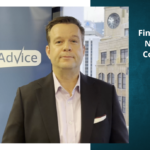Media release: 4 September 2021. Author Katrina Shanks, CEO Financial Advice NZ Article originally published in Stuff.co.nz.
Research shows many of us started working differently last year, working from home for at least part of the week, and we haven’t really gone back to that the ways of old.
We also shop differently, often online, sometimes tending to buy more than we previously did, just in case. I know people who still have a stash of toilet paper from last year, and their freezer is now constantly filled to the brim.
We also tend to exercise more and eat more healthily. Gym numbers have apparently stayed at higher than 2020 levels. And various surveys are still telling us some of the good spending and saving habits we picked up last year are still with us.
All this has no doubt put us in good stead for our latest brush with a Level 4 lockdown.
But it’s being more conscious about what we do with our money that particularly interests me, because with that comes the ability to do lots more of what we want to do and to make (hopefully better) choices, including buying that perhaps healthier food, and affording that gym membership.
For me, the latest lockdown had me mentally checking my finances and budgeting are in order.
Early in the year I wrote about resolutions for 2021, and what I suggested fits perfectly into what I would call a timely financial warrant of fitness safety check.
They’re worth repeating to see how far you’ve got with all that:
Create a budget and stick to it
Tracking your spending can help you understand where your money goes each month and make it easier to identify areas where you can cut back.
Write down all your essential fixed expenses – rent/mortgage, groceries, transport, power, subscriptions, insurances, internet, mobile phones – then you can see how much you have left for nice-to-have’s, such as eating out, entertainment, clothes. Spend on what you need first, then on what you want later.
Start an emergency fund
Covid-19 should also have taught us to be prepared for anything, and that should involve having an emergency fund set aside for the unexpected. This could be simply another savings account which is not connected to an eftpos card so you can’t use it on a whim. Some experts recommend saving three to six months of living expenses.
Attack those credit cards
Pay down your credit cards or get into a habit of paying them off inside the interest-free period. Don’t add any new ones. Resolve that if you can’t pay for it by cash, don’t put it on a card.
Cook more meals at home
This is one of the big trends to come out of the pandemic and may be something you’re still doing. It can also help seriously with budgeting.
It’s not only a much cheaper way to eat, but it can also be fun, and can be made easier by using one of the boxed delivery services, where you can simply heat their meals in the microwave or prepare the meal yourself using supplied ingredients.
Refinance your mortgage or pay it off faster
With interest rates low, now is a great time to review your mortgage. (update: you should do this sooner rather than later, with the Reserve Bank indicating it will increase the official cash rate in October, which tends to push up mortgage rates).
If you can, look for a lower rate (maybe have a think about a longer fixed term), but if you’re on fixed rate there will likely be a penalty to break it. Or another bank with a lower rate may offer a cashback that will cover your break fee.
Paying it off faster can be as easy as switching from monthly to fortnightly payments or making extra lump-sum payments that come off the principal. Keep your payments the same when rates drop.
Save more
There are countless ways of doing this, but one of the easiest is to automate savings into a separate account. This means you never see those funds, so it’s as if you never had them, they just keep building up. Employers may allow you to divide your pay at source, or you can set up an auto payment from your main bank account. The important thing is to set up a savings regime, however small. It all adds up.
Check your investments
Are your investments working hardest for you? If you have money in the bank, they’re in the safest place but (still) won’t be earning a lot of interest, so you might check other options.
Government bonds, where you lend money to the government or a council for a set rate and period; managed funds, which spread the risk across shares, property, term deposits and cash; or riskier investments such as shares, foreign exchange, cryptocurrencies, hedge funds, gold, art and even wine. Or property.
Being fit for purpose
Are your investments suitable for your life stage? Are you in your teens, just started your first job with an eye on buying a house, and prepared to take a few risks to reach your goals faster? Or are you nearing or past retirement and want to make sure your money is safe for your life without a big income?
This should be something you should check at significant milestones to ensure your money is securing your financial future, is easy to get should you need it in a hurry, and is in a risk profile that suits your life stage.
Health-check your KiwiSaver
The biggest factors in determining how financial comfortable you’ll be in retirement are how well your fund is performing and the fees you’re paying. The best way of determining both is to compare them with other funds.
There are free comparison tables around, including those run by the Financial Markets Authority, Interest.co.nz, Morningstar, and Canstar, to name just a few. Also, can you pay more into it? If you are in a default fund, seek advice now as to what is the best option for you.
Get advice
As always, when making financial decisions, whether it be about savings plans, budgeting, mortgages or investing, seeking independent advice from someone tested and tried in the particular field is best.
There are many options, and advisers who are members of Financial Advice NZ can help with this.
Sometimes looking at your financial situation is a bit scary. The more control you have on your financial situation and the financial decisions you make the easier it becomes to achieve your goals and live the life you want. Today is a good day to start the journey.
Katrina Shanks is the chief executive of Financial Advice New Zealand.





